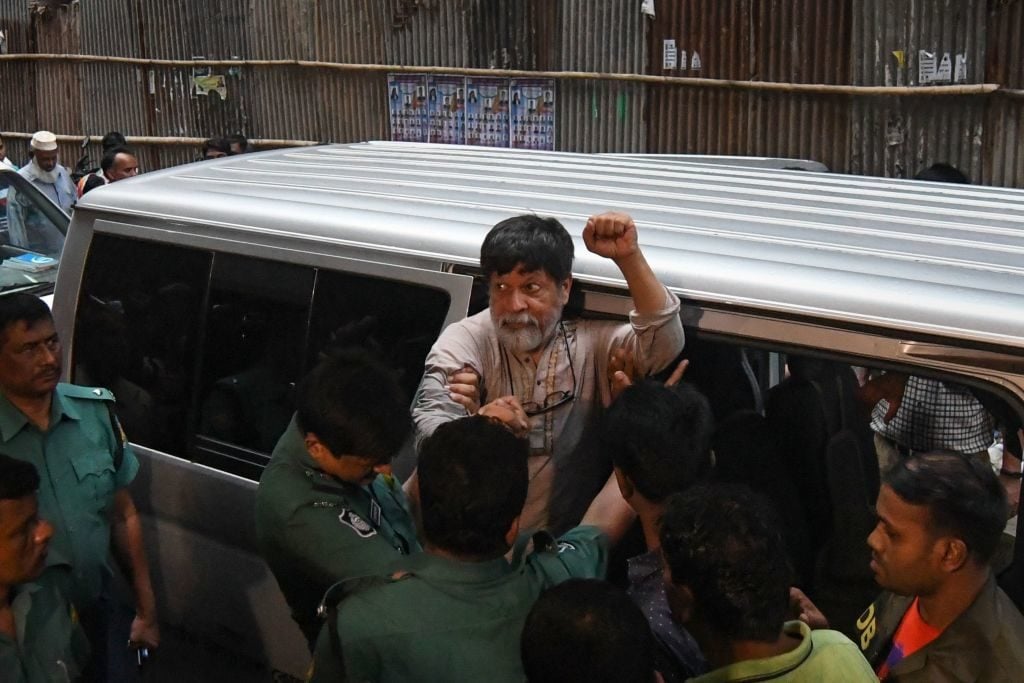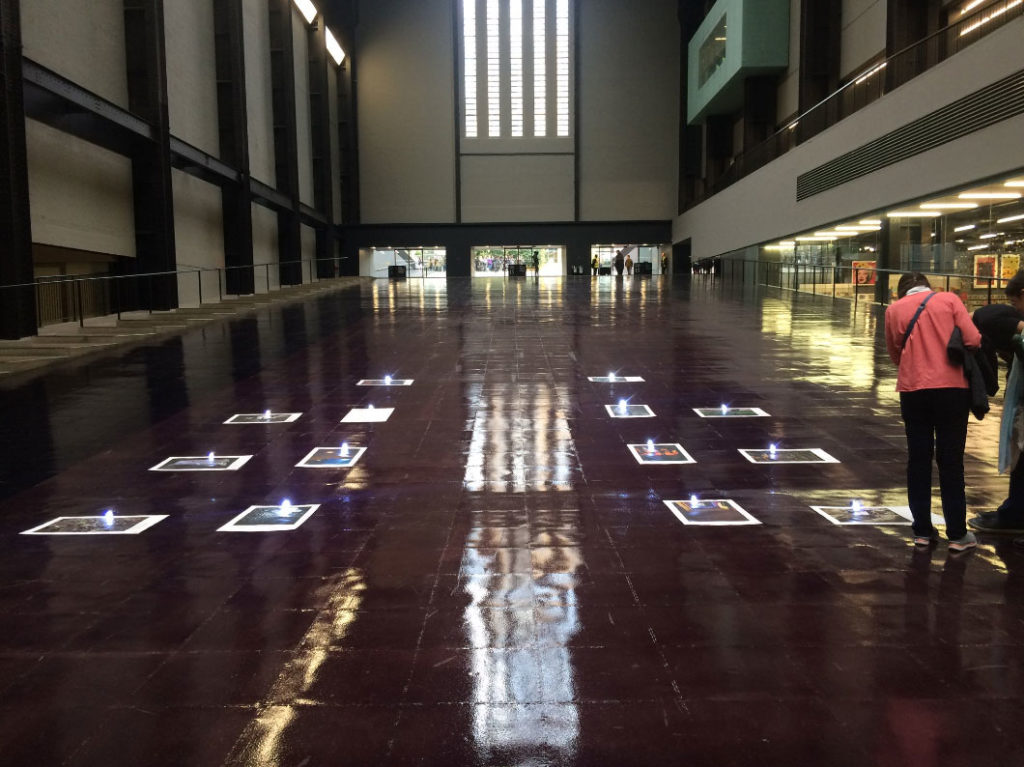Politics
Tania Bruguera Stages an Impromptu Intervention at the Tate Modern in Solidarity With Jailed Photographer Shahidul Alam
"Art never meant so much to me," says Alam's niece.

"Art never meant so much to me," says Alam's niece.

Taylor Dafoe

Cuban artist Tania Bruguera has staged an impromptu protest at the Tate Modern in support of Shahidul Alam, the Bangladeshi photographer who was jailed on August 5th after posts to social media and an interview with Al Jazeera expressing criticism of his government’s brutal handling of recent student protests.
Alam’s case has thrown a harsh light on Bangladesh’s persecution of freedom of speech, and has been taken up by a variety of cultural and political figures, including a chorus of Nobel Peace Prize winners. Bruguera’s action, however, brought attention to his plight into the heart of one of the world’s most famous museums.
For her action, Bruguera spread a selection of Alam’s photographs along the floor of the museum’s famous Turbine Hall, and topped each with a small flashlight. While unplanned, the protest accompanied the artist’s current exhibition “10,143,210,” which opened at the museum Tuesday. The show, a response to the international migration crisis, comprises several installations, including a menacing sound piece and a photograph of a Syrian refugee installed under a heat-sensitive floor.
Bruguera notified the museum of the plans for her gesture of solidarity this morning. The Tate sent security guards to oversee the intervention, but did not intervene. Museum visitors were encouraged to interact with the photos and take pictures themselves.

Activist and photographer Shahidul Alam gestures as he is removed from a vehicle by policemen for an appearance in a court, in Dhaka on August 6. Photo: MUNIR UZ ZAMAN/AFP/Getty Images
Jose-Carlos Mariategui, a Peruvian curator, helped organize the action with Bruguera and Sofia Karim, Alam’s London-based niece who has been campaigning for his release. Upon the opening of Bruguera’s show, Mariategui approached the Cuban artist and briefed her about Alam’s status.
Bruguera, who herself has herself been jailed for speaking out against the Cuban government, identified with Alam’s plight immediately.
“She just took action,” Karim tells artnet News. “A lot of people have said they care and some have done amazing things. But what struck me was just how quickly she took action.”
The photos were taken from Alam’s Crossfire project, a series of conceptual photographs documenting the sites of extra-judicial killings perpetrated by the Bangladeshi government’s Rapid Action Battalion (RAB). The RAB has claimed the victims were merely caught in the exchange of gunfire. Alam shot the majority of the Crossfire images by flashlight.

Tania Bruguera’s intervention in the Turbine Hall of the Tate Modern. Courtesy of and Sofia Karim.
“It was very poignant for me, using the Crossfire images,” says Karim. “With those images, my uncle was trying to give a sense of how those people felt, being captured, being tortured. Now it comes full circle. Using the images that my uncle made to tell the story of the pain of others, we’re highlighted his pain now. It was very moving.”
After nearly two months of delays, Shahidul’s bail hearing was scheduled for today. However, Karim notes that it was delayed anew after the attorney general could not be present for the entirety of the hearing and requested more time.
“It’s just excuse after excuse,” Karim says. “It’s terrible.” Alam’s bail hearing is now set to resume Sunday.
As the Tate was closing down for the day, Karim sent Bruguera a message: “Art never meant so much to me. You’ve helped in the fight for someone’s life.”